第17章 CHAPTER V(3)
Her "dainty rogue in porcelain" displeased Sir Willoughby. "Why rogue?" he said. The lady's fame for hitting the mark fretted him, and the grace of his bride's fine bearing stood to support him in his objection. Clara was young, healthy, handsome; she was therefore fitted to be his wife, the mother of his children, his companion picture. Certainly they looked well side by side. In walking with her, in drooping to her, the whole man was made conscious of the female image of himself by her exquisite unlikeness. She completed him, added the softer lines wanting to his portrait before the world. He had wooed her rageingly; he courted her becomingly; with the manly self-possession enlivened by watchful tact which is pleasing to girls. He never seemed to undervalue himself in valuing her: a secret priceless in the courtship of young women that have heads; the lover doubles their sense of personal worth through not forfeiting his own. Those were proud and happy days when he rode Black Norman over to Upton Park, and his lady looked forth for him and knew him coming by the faster beating of her heart.
Her mind, too, was receptive. She took impressions of his characteristics, and supplied him a feast. She remembered his chance phrases; noted his ways, his peculiarities, as no one of her sex had done. He thanked his cousin Vernon for saying she had wit. She had it, and of so high a flavour that the more he thought of the epigram launched at her the more he grew displeased. With the wit to understand him, and the heart to worship, she had a dignity rarely seen in young ladies.
"Why rogue?" he insisted with Mrs. Mountstuart.
"I said--in porcelain," she replied.
"Rogue perplexes me."
"Porcelain explains it."
"She has the keenest sense of honour."
"I am sure she is a paragon of rectitude."
"She has a beautiful bearing."
"The carriage of a young princess!"
"I find her perfect."
"And still she may be a dainty rogue in porcelain."
"Are you judging by the mind or the person, ma'am?"
"Both."
"And which is which?"
"There's no distinction."
"Rogue and mistress of Patterne do not go together."
"Why not? She will be a novelty to our neighbourhood and an animation of the Hall."
"To be frank, rogue does not rightly match with me."
"Take her for a supplement."
"You like her?"
"In love with her! I can imagine life-long amusement in her company. Attend to my advice: prize the porcelain and play with the rogue."
Sir Willoughby nodded, unilluminated. There was nothing of rogue in himself, so there could be nothing of it in his bride.
Elfishness, tricksiness, freakishness, were antipathetic to his nature; and he argued that it was impossible he should have chosen for his complement a person deserving the title. It would not have been sanctioned by his guardian genius. His closer acquaintance with Miss Middleton squared with his first impressions; you know that this is convincing; the common jury justifies the presentation of the case to them by the grand jury; and his original conclusion that she was essentially feminine, in other words, a parasite and a chalice, Clara's conduct confirmed from day to day. He began to instruct her in the knowledge of himself without reserve, and she, as she grew less timid with him, became more reflective.
"I judge by character," he said to Mrs. Mountstuart.
"If you have caught the character of a girl," said she.
"I think I am not far off it."